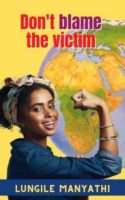South Africans, like many around the world, are facing a rapidly changing environment. President Cyril Ramaphosa declared a National State of Disaster on Sunday, 15 March 2020. Schools closed and universities followed closely afterwards. Citizens were told to limit gatherings to 100 people. Those who are able have been encouraged to work from home and those who have to use public transport warned to wash hands and keep their distance from others. All sports events have been cancelled and libraries have been closed.
As the days’ progress and the coronavirus spreads amongst our people, we are seeing things tighten up considerably. Strict new measures have been introduced that include the closure of all bars, restaurants and shebeens at 6pm and places that sell alcohol cannot host more than 50 people at the same time. If people don’t comply with these rules, they may face a fine or jail time.
Why are all the rules being changed? What is it about the Covid-19 coronavirus that means that we need to really listen and follow through with these rules?
The infection rate from human-to-human transmission in coronavirus is very high. For every one person infected at least 2½ other people may catch it. Some people can spread it to even more people than this. This means that the rate of infection is almost doubling every day and, because coronavirus spreads even when people don’t have the symptoms, it becomes very difficult to know who is sick.
Let’s look at the numbers. Europe has now become the epicentre of the virus and Italy has been the hardest hit so far. The first cases of coronavirus in Italy were confirmed on 31 January 2020. In 6 weeks, their numbers have grown to 35,713 confirmed cases with 2,978 deaths. The entire country is in lockdown but people are still dying.
How do we prevent this happening here?
One of the things we need to do, even if we’re convinced we haven’t got the virus is social distancing. This means that you need to:
– Maintain a physical distance between you and other people – about 2 metres.
– Minimise contact with people by avoiding public transport whenever possible, limit non-essential travel, work from home and skip social gatherings.
– Stay at home as much as possible.
People who are either elderly (over 65-years-old) or suffer from an underlying condition such as high blood pressure, diabetes, cancer, heart or any lung diseases need to be particularly careful to practise social distancing or self-isolation.
Self-isolation is extremely important if you think you might have contracted the virus. You might have been exposed to someone who has the virus or you get a sore throat, a dry cough and in many cases a fever. This means that you need to:
– Stay at home – no going out at all.
– Ask someone to get food and other necessities for you and leave them at your front door.
– Don’t have any visitors, especially those that are vulnerable to the disease.
– Keep your distance from everyone even those who live in your house.
If you think you might have the virus, you will need to self-isolate for 14 days. This is the incubation period – that means, if you have the virus, it can take up to 14 days to make you sick – so you can be walking around feeling fine but infecting others.
Many people, especially younger people, who become infected with the virus do not need to go to hospital. The symptoms may actually be quite mild. However, some people, especially those who are over 65 or have a pre-existing condition, may find that they experience severe breathing problems. This means that they have viral pneumonia caused by the virus. Antibiotics don’t work and there is, as yet, no vaccine or cure.
These people will need to go to the hospital and they will be put in quarantine. People can also self-quarantine themselves if they have the disease but are not sick enough to need hospital. In South Africa, anyone who refuses to quarantine or self-isolate themselves after testing positive for Covid-19 can be prosecuted.
This brings us to flattening the curve. Because so many people are going to catch the virus – and this seems almost inevitable now – we need to either practise social distancing or self-isolation to reduce the number of people who become infected with the disease all at the same time. If the number of cases double almost daily, the hospitals will not have enough beds, ventilators and other equipment, that the doctors need to treat those who are really ill.
By slowing down the infection rate as much as possible, we give the hospitals time to treat the people who need it before the next batch comes in. If the hospitals become overwhelmed with cases, they will not be able to treat everyone and there will be many unnecessary deaths. In Italy, doctors are having to make choices about who will live and die as they are not able to treat everyone. This is a dreadful situation and South Africa definitely doesn’t want to find itself in this position.
So experts are saying it is likely that many of us will get the virus. The important thing is for not too many people to get it all at once as that is what creates the disaster. So instead of a high spike of numbers all at once we need to ‘flatten the curve’
If we all work together and minimise our contact with each other (this is not for ever – just for some weeks or a few months) we will be able to save many lives.





